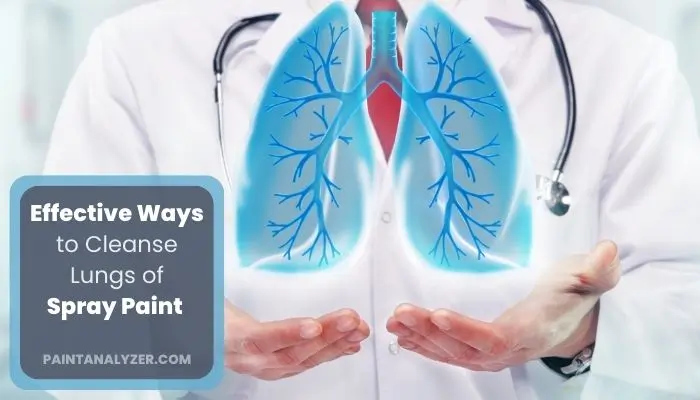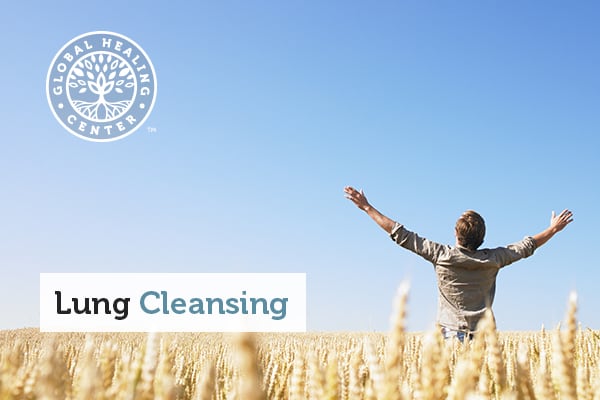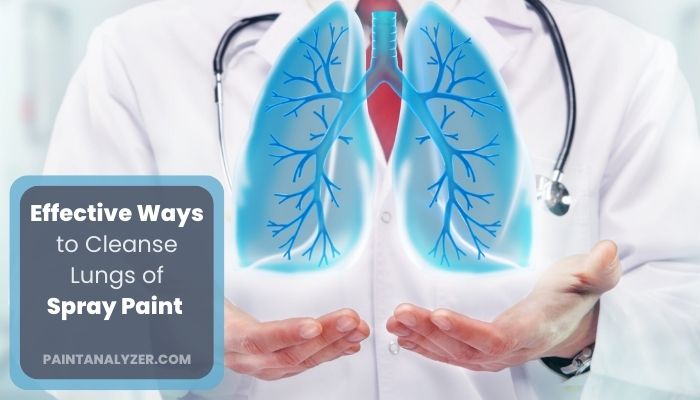Spray paint is one of the most commonly used paints, due to its versatility and ease of use. Inhalation of large amounts of spray paint fumes can cause chemical pneumonia, so it is important to get treated by a doctor if you think this may be the case
One effective method is to drink plenty of fluids, which will help to thin the mucus in your lungs and make it easier to cough up. You can also try taking a steamy shower or using a humidifier to increase the moisture in your sinuses and help reduce congestion.
You can also try using a saline nasal spray or sinus rinse to flush out your sinuses. Drink plenty of fluids, like water and herbal tea, to help thin the mucus in your lungs and make it easier to cough up.

How Do You Detox Your Lungs from Spray Paint Fumes?
Whether you’re a professional painter or a do-it-yourselfer, it’s important to know how to cleanse your lungs after exposure to spray paint. Prolonged exposure to paint fumes can cause serious health problems, including respiratory infections, headaches, and dizziness. To detox your lungs from paint fumes, follow these steps:
Drink plenty of fluids
Drinking fluids helps thin mucus and keeps your respiratory system hydrated. This can help reduce the irritation caused by paint fumes and flush the toxins out of your system. Making it easier to cough up any mucus that does build up.
Water is always a good choice, but you can also drink fruit juices or herbal teas. Avoid alcoholic beverages, as they can actually dehydrate your body.
See a doctor
If you have been exposed to spray paint fumes, it is important to consult a doctor to determine if you need to Detox Your Lungs. Symptoms of exposure to spray paint fumes include difficulty breathing, coughing, and irritation of the eyes, nose, and throat. If you experience any of these symptoms, you should seek medical attention immediately.
Quit smoking
Smoking tobacco products greatly increases your risk of lung damage and disease. If you smoke, quitting is the best way to protect your lungs.
Eat a healthy diet
Eat a healthy diet that helps detox your lungs. Foods that are rich in antioxidants, like fruits and vegetables, can help reduce the amount of damage done by the fumes. Additionally, foods that help improve lung function, like garlic and ginger, can also be beneficial.
By incorporating these foods into your diet, you can help keep your lungs healthy and reduce the risk of long-term damage.
Exercise regularly
Exercise is a great way to detox your lungs from harmful fumes. Just a few minutes of exercise each day can help clear your lungs and prevent harmful effects from spray paint fumes.
How to prevent inhaling spray paint fumes?
When working with spray paint, it is important to take precautions to avoid inhaling the fumes. The fumes from spray paint can be harmful to your health, so it is important to take steps to avoid breathing them in.
Move To A Well-Ventilated Area
Paint fumes can be harmful if you breathe them in for too long. If possible, work in a well-ventilated area or open windows and doors to let fresh air in. First, try to remove yourself from the area where the fumes are present. If you can’t leave, open windows and doors to improve ventilation. If possible, use a fan to help circulate fresh air.
Use an air purifier
Air purifiers can help remove some of the harmful chemicals in paint fumes from the air. This can help protect your lungs from irritation and damage.
Wear a mask
A mask can also help filter out some of the harmful chemicals in paint fumes. Make sure to choose a mask that is rated for filtering out fine particles like paint fumes.
What to Do After Inhaling Spray Paint Fumes?
Inhaling paint fumes can be dangerous, and it is important to take quick action if you or someone else has inhaled them. Here are some things to do after inhaling paint fumes:
Move to fresh air immediately
If you are indoors, open windows and doors to ventilate the area, allow fresh air to circulate. If you are outdoors, move away from the source of the fumes. Go to hospital emergency if you or someone else is having trouble breathing or feeling dizzy or lightheaded.
Drink water
Drink lots of fluids and rest until symptoms improve. If you think you may have inhaled too much paint fumes, don’t wait to see if symptoms develop – get medical help right away!
If the person is alert and able to breathe on their own, have them drink lots of water or fluids like fruit juice to keep themselves hydrated.
Give breathing support
Rescue breathing involves exhaling into the person’s mouth for about two seconds while watching for their chest to rise. You then pinch their nose shut and give another breath. Repeat this process until help arrives or the person starts breathing on their own again.
Spray Paint Poisoning Symptoms
If you or someone you know has been exposed to spray paint fumes, it is important to be aware of the potential for poisoning. When you accidentally inhale spray paint, it can be a very scary experience.
You may feel like you can’t breathe, and your throat may start to close up. If this happens, it’s important to stay calm and take necessary steps to take out the paint chemical out of your lungs.
Symptoms of spray paint poisoning can include headache, dizziness, nausea, vomiting, and difficulty breathing. More serious symptoms can include seizures, coma, and death.
If you suspect that someone has been poisoned by spray paint fumes, it is important to seek medical attention immediately.
Here are some other things to know about accidentally inhaling spray paint:
Initial Symptoms
Symptoms of inhalation include coughing, wheezing, shortness of breath, and difficulty breathing. Inhaling spray paint can irritate your lungs and airways, and cause inflammation.
Serious Problems
Long-term exposure to inhaled spray paint can lead to more serious health problems such as chronic bronchitis or emphysema. In more serious cases, inhalation of these fumes can lead to pneumonia or other respiratory infections.
If you have been exposed to high levels of spray paint fumes, it is important to seek medical attention immediately.
How to Clear Lungs of Mucus?
Mucus is a thin, sticky substance that helps trap dust, bacteria, and other particles so they don’t get into our lungs. When we’re healthy, our bodies produce just the right amount of mucus; but when we’re sick or under stress, we can produce too much. This excess mucus can build up in our airways and make it difficult to breathe.
There are a few simple things you can do to help clear your lungs of mucus:
Drink plenty of fluids
This will help thin out the mucus so it’s less sticky and easier to cough up. Avoid sugary drinks though as they can actually make the problem worse by increasing inflammation. Stick with water or herbal teas.
Use a humidifier
The moisture will help loosen the mucus so it’s easier to expel. Just be sure to clean your humidifier regularly to avoid growing mold or bacteria.
Perform some simple breathing exercises
Take deep breaths in through your nose for four counts, then exhale through your mouth for eight counts. Repeat this several times throughout the day (even when you’re not feeling sick) to help keep your lungs healthy and clear.

Credit: explore.globalhealing.com
Can Cleaning the Lungs of Spray Paint Help Eliminate the Smell Faster?
Cleaning the lungs of spray paint does not directly help in getting rid of spray paint smell faster. The smell is caused by volatile organic compounds (VOCs) released from the paint, which can linger in the air and on surfaces. Ventilating the area, using air purifiers, and applying odor-absorbing solutions are more effective ways to eliminate the smell.
How To Detoxify Your Lungs At Home- Lung Detoxification for Smokers
Conclusion
Inhaling paint fumes can be bad for your health. Because the fumes can also lead to a buildup of toxins in your lungs. Over time, this can cause serious respiratory problems and even Lung Cancer.
The best way is to avoid them altogether. But if you’re already exposed, there are a few things you can do to help remove the toxins from your body.
One way is to drink plenty of fluids. This will help thin the mucus in your lungs and make it easier to cough up. You can also try taking a steamy shower or using a humidifier to loosen the congestion in your chest.

